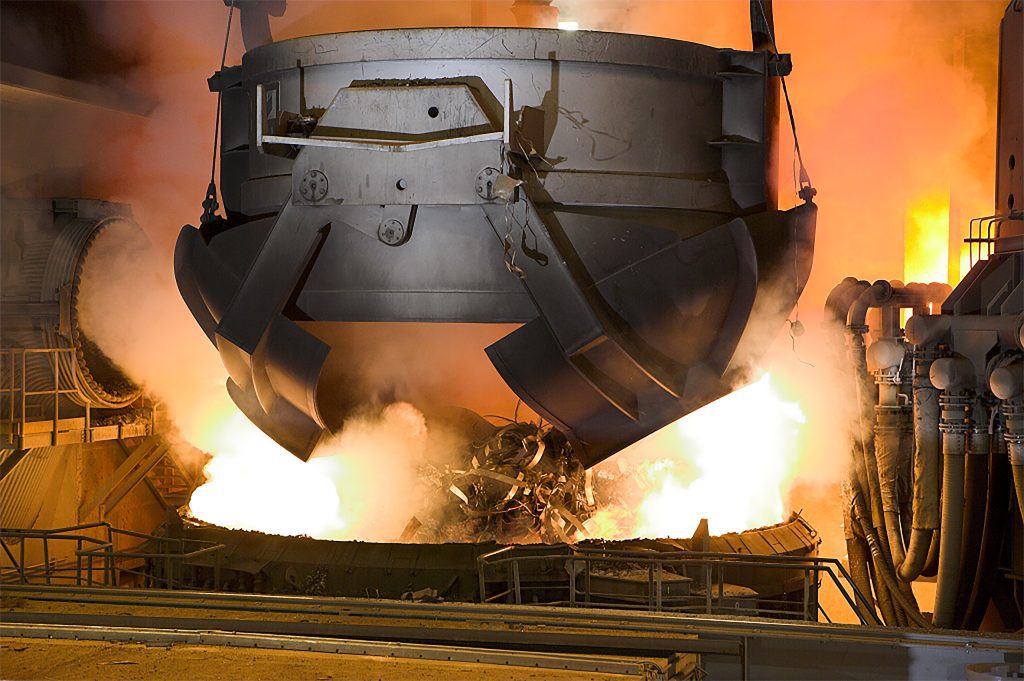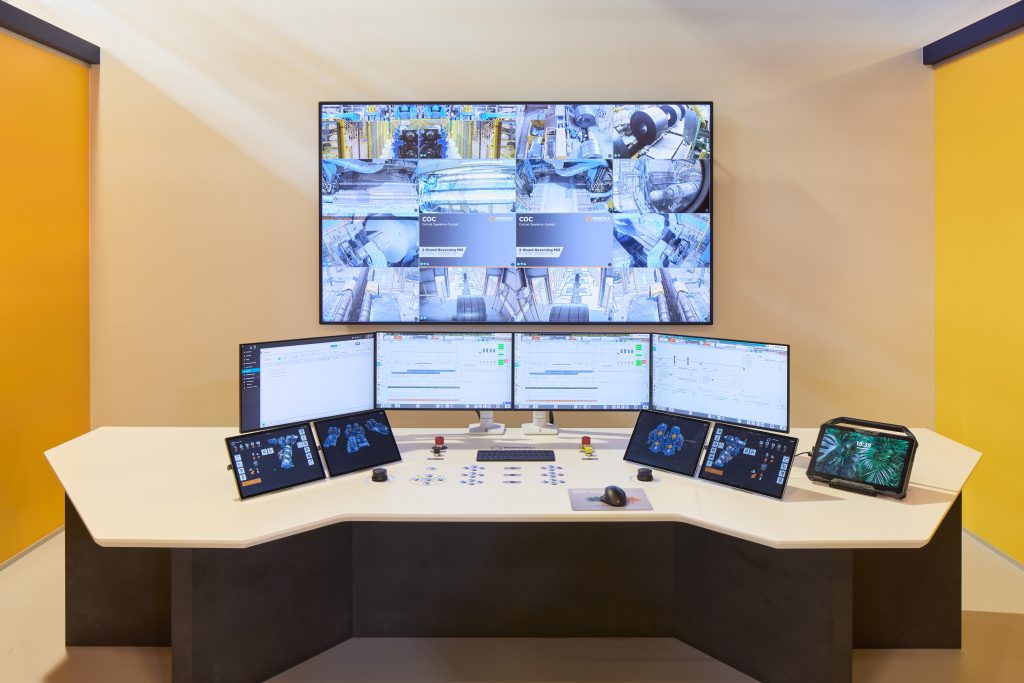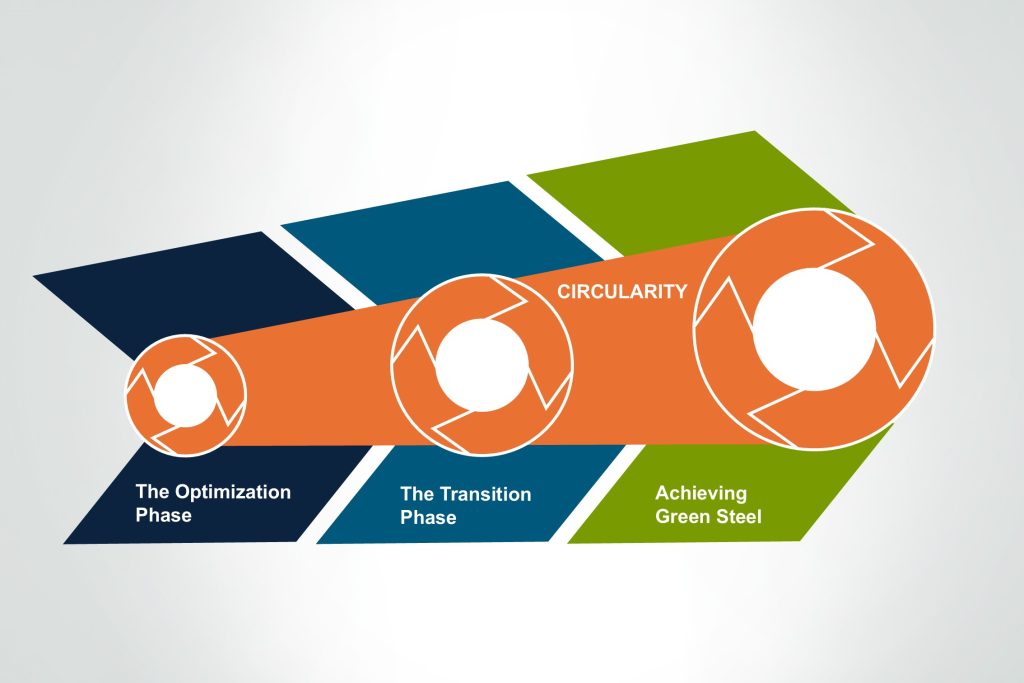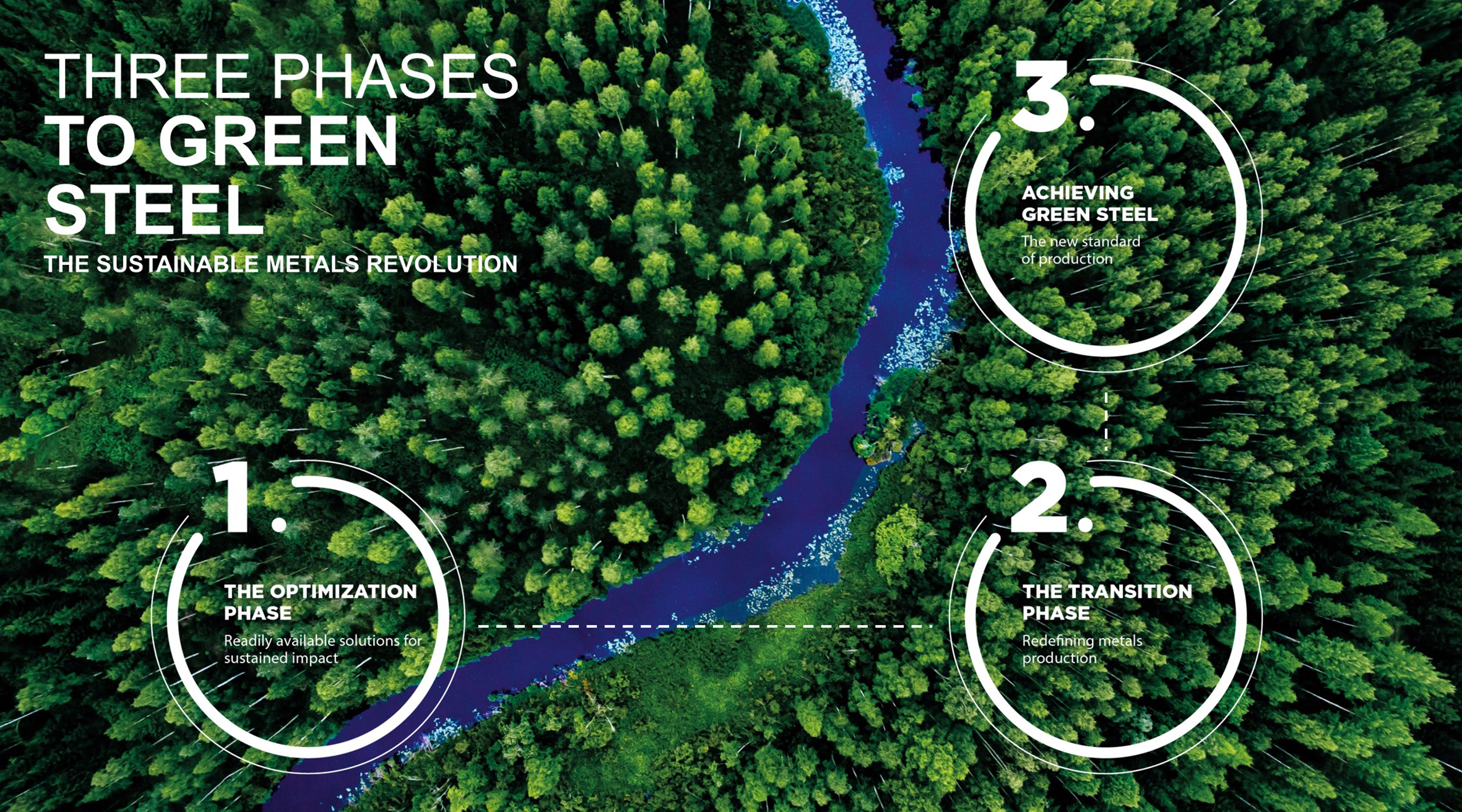By Kurt Herzog & Dr. Alexander Fleischanderl, Primetals Technologies
Optimizing the present: Enhancing efficiency and quality
The first phase of green transformation focuses on optimizing current operations. Here, digitalization plays a crucial role by leveraging automation and data-driven insights to improve process efficiency, reduce energy consumption, and optimize quality management. Artificial intelligence and data analytics algorithms are the tools used in this phase, demonstrating the power of digital solutions in deriving actions from automatically generated insights from production data to achieve defined operational goals.
One example of digitalization in action is the use of AI to predict and manage hot metal quality parameters in blast furnaces, such as silicon content and tapping temperature. These parameters are critical to ensuring stable production and high-quality output. Traditional models struggle to accurately predict these conditions due to the complex chemical and physical dynamics of blast furnaces. However, Primetals Technologies has developed a machine learning model that uses existing instrumentation to predict key performance indicators with remarkable accuracy over a two-hour forecast period. By visualizing a probability funnel for predicting hot metal quality parameters, the solution enables operators to trust AI-driven insights, fostering confidence in the new technology and changing the way humans interact with systems in the optimization phase.

Another example where data analytics methods are key to achieving better results is determining the optimal EAF operating strategy in terms of scrap cost, conversion cost, or tap-to-tap time, depending on the current market situation. Operating an EAF without exploiting the potential of large production data will result in suboptimal performance. Attempting to analyze exported large production data in Excel will cause a loss of focus on properly identifying variances, and information from time series data will be missing. Primetals Technologies offers EAF best practice analysis services based on a self-developed big data filtering and big data sorting engine, which assists EAF operators to achieve their individual goals by finding the operational best practice based on actual heats. First, scrap qualities are clustered, then a reference heat is defined for each cluster. Similar heats in historical data are identified, Level 1 data from these similar historical heats are analyzed, and finally a new EAF best practice is derived. The database consists of thousands of heats over a period of years and a time series with millions of rows.
A third application of AI methods is quality control throughout the entire production chain of a steel plant. Fast identification of quality deviations and fast definition of corrective and compensatory actions are key to achieving a high yield of products that precisely meet quality targets. Primetals Technologies has developed the digital know-how-based quality control solution through-process quality control (TPQC). TPQC collects seamless quality data along the entire production process (“through process”) by connecting to various data sources in a steel plant. These data points create a product genealogy that provides insight into signal details, heat maps, and product and signal comparisons visualized in various dashboards. Using artificial intelligence to analyze this vast amount of collected data, TPQC predicts and analyzes mechanical properties and identifies root causes in a timely manner.
The transition phase: Embracing new routes
In the transition phase, the steel industry faces the challenge of operating in hybrid modes — balancing existing production routes with new, CO2-friendly alternatives. Steel producers in Austria and Germany are developing their electric arc furnace (EAF)-based production routes alongside existing converter-based methods. The transition to hybrid operations presents unique challenges, including the need to produce consistent steel quality and gain operational expertise with new technologies.

Primetals Technologies has developed the central operation cockpit (COC), designed to pave the way for autonomous operations. This intelligent and centralized pulpit allows a single operator to monitor one or more plants, optimizing focus on actual process steps and ensuring maximum attention to critical situations. The COC features a minimalist interface that reduces the number of screens required and prioritizes essential information in real time. This ergonomic design increases operator efficiency and reduces the risk of human error, contributing to safe and stable operations.
Embedded with process knowledge, the COC assists operators with corrective actions and provides tools to eliminate human error and maximize operational safety. Its seamless integration with automation systems ensures consistent and efficient plant management. In addition, the COC enables remote plant operation, providing the flexibility and adaptability to manage operations from multiple locations. By focusing on critical processes and facilitating seamless system integration, the COC is revolutionizing plant management, supporting the green transition and driving the industry toward more efficient and sustainable practices.

Just as pilots use flight simulators to keep their skills sharp, steel industry operators need similar capabilities. That is why Primetals Technologies has launched the virtual plant, a comprehensive solution consisting of a training center and a software development and testing environment. This innovative offering is designed to improve the level of operator competence to ensure operational efficiency, consistent lifecycle management of automation software, and safety. The virtual plant training center provides a safe space where operators can learn by doing and by making mistakes, helping them become more confident and able to handle complex situations.
The training center enables operators to improve their skills in using different automation solutions, both before the plant is built and throughout its operational life. The result is increased productivity and safety. The center features a replica of the control room and offers various training scenarios to develop different skills. As a result, trained operators are better able to identify problems and find solutions quickly, resulting in more stable and safer operations.
During this transition, digital tools, such as the examples mentioned above, facilitate the integration of alternative production processes. Challenges such as hybrid operations or operations with an inexperienced workforce can be supported with digitalization solutions to ensure seamless adaptation to new production units and operational know-how.

Embracing circularity: The future of steel
Digitalization solutions play an important role in assisting steel producers in mastering the green transformation by optimizing existing production routes and accelerating the ramp-up time of new production routes to achieve target quality. The referenced digitalization solutions help to continuously improve the gate-to-gate performance of a steel plant—from the entry of scrap to the exit of coils. Apart from this transformation within a steel plant, there is another aspect emerging as a vital part of sustainability: circularity. The EU End of Life Vehicle Directive emphasizes the need for circular design, recycled content, and improved governance. The circular economy concept promotes optimal resource efficiency and ensures that resources are allocated to products and services in a sustainable manner. Steel, with its inherent properties, offers significant advantages in a circular economy where products are designed for durability, ease of reuse, remanufacturing, and recycling.
As a result, steel processors, particularly in the automotive industry, are increasingly focusing on reducing the number of steel grades to facilitate recycling and reduce carbon footprints. They are likely to demand more information and transparency from all stakeholders involved in the circularity of a car.
This means that it will be important for steel producers to focus not only on what happens between incoming scrap and outgoing coils, but also on what happens between outgoing coils and incoming scrap.

Digitalization supports this mission by providing visibility and traceability throughout the lifecycle of steel products. Consider the example of a car: when a car reaches the end of its life, it would be optimal for the metals recycler to disassemble the car and separate the various metal parts according to their chemical composition. However, this requires full traceability of all metal parts and their material properties as well as information such as where the metal was produced and its carbon footprint. A solution from Primetals Technologies that supports this idea is TPQC, which connects production units and plants across multiple locations and seamlessly collects quality data from multiple data sources. TPQC provides a complete product genealogy that leads to longitudinal projection of process and quality data, providing the basis for issuing digital product certificates for semi-finished and finished products.
In a truly circular economy, collaboration between stakeholders is essential. However, data sharing is often a challenge because each stakeholder holds data privately. Primetals Technologies advocates for data circularity, a principle where relevant production data is centrally stored and shared across company, industry, and country borders. This approach facilitates transparency and accountability, supports steel circularity, and ensures optimal resource allocation. As the green transformation continues, the importance of circularity, both in goods and data, will continue to grow and drive the industry towards a sustainable future.
Digitalization as a cornerstone for sustainable steel
Digitalization is not just about tools; it is a cornerstone of the green transformation of the steel industry. It opens new opportunities for optimizing processes within a steel plant and across organizational borders. By fostering transparency and collaboration among stakeholders, digital solutions pave the way for autonomous operation, the transition to hybrid operations, and embracing circularity. Through the strategic implementation of expert systems to enable closed-loop operations, through-process systems to seamlessly collect quality data along the entire production chain, AI methods to derive actions from production data, and operator assistance systems to manage new production routes, Primetals Technologies is helping to lead the transformation of the steel industry to ensure it remains resilient, efficient, and sustainable for generations to come.

